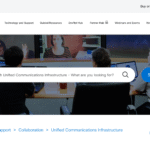skilling.com Scam Review — Issues and Allegations
In the competitive world of online trading platforms offering forex, CFDs, cryptocurrencies, and other financial instruments, it’s essential to distinguish the legitimate from the questionable. Skilling positions itself as a modern, regulated brokerage offering a wide variety of instruments and trading tools. However, a significant number of users have raised complaints, highlighting practices that suggest serious concerns regarding fairness, transparency, and user protection. This review dives into those areas — without promises of recovery but with a thorough look at the red flags, user reports, and structural questions that may warrant the “scam” label for some traders.
1. What Skilling Claims to Be
Skilling markets itself as a fintech-brokerage established in the mid-2010s, offering trading on more than 800 global assets including forex pairs, shares, indices, commodities and crypto CFDs. The firm claims to be regulated—specifically under the Cyprus Securities & Exchange Commission (CySEC), among other jurisdictions. The site promotes “transparent pricing,” “modern platforms,” and a user-friendly experience. For many new traders, that presentation appears inviting.
2. Prominent User Complaints and Allegations
Despite its marketing, numerous users have registered complaints across review sites and forums. Some recurring themes include:
-
Withdrawal difficulties: Traders report that while deposits are accepted promptly, withdrawal requests are repeatedly declined or delayed without clear justification. One user stated that “the only way I was able to withdraw was via PayPal; all other options were declined.” A user further noted that after making a profit of over €5,700 on the US100 index, the profit was removed citing “off-market trading” even though the trade followed standard procedures.
-
High spreads and hidden fees: Some users claim that spreads (the difference between buy and sell prices) on certain assets are so wide that the instrument moves less than the cost of trading. One trader said: “The spread so big (bigger than average daily move)… you have to hold for many days. Then come daily swap fees which make it too expensive.”
-
Account blocking or profit removal: There are reports of profitable trades later being nullified or reversed by the platform under rules like “latency arbitrage” or “sniping” that the trader disputed. One user remarked: “They arbitrarily remove profits when it suits them citing ‘latency arbitrage’ when it has nothing to do with my trading.”
-
Aggressive marketing or calls: Some clients say that after registering they received frequent phone calls or prompts to deposit more funds or upgrade their account tier. One review mentioned “5-8 scam calls a day” following registration.
-
Inappropriate bonus/wagering terms: While not as prominent as in pure “high-yield” schemes, some traders allege that whenever bonuses were offered, they came with restrictive terms that made withdrawal unrealistic unless large turnover was achieved.
3. Why Some Traders Classify It as a “Scam” Broker
When you line up the complaints and structural issues, Skilling exhibits several features commonly found in firms labeled as “scam” brokers—regardless of whether they are outright fraudulent or simply operate with excessive risk or unfair rules. Key issues include:
-
Removal or denial of profits under opaque rules: If a trader legitimately profits but the platform withdraws the profit citing vague policy violations or system abuse, the trust model of brokerage is violated.
-
Withdrawal restrictions or selective access: When deposits are easy but withdrawals become difficult or entangled with additional demands, the platform loses its brokerage integrity.
-
Conflict of interest with market-making vs. execution: Some reviews suggest that the platform acts as counter-party to user trades and may have incentive to act contrary to user success. While market-making is not inherently improper, lack of transparency around execution model raises concern.
-
Discrepancy between marketing and user experience: The firm markets low spreads or quick execution, but many users contradict that with reports of wide spreads, delays, and hidden fees—creating a substantial gap between expectation and reality.
-
Regulatory complexity and cross-jurisdiction confusion: Although Skilling asserts CySEC regulation, many user complaints come from regions where their local protection may not apply. The burden on the user to verify which entity they are dealing with is high, and many do not make the distinction.
4. Regulatory Status Versus Reality
Skilling asserts regulatory oversight—its client agreement document cites regulation under CySEC licence No. 357/18, with registered office in Nicosia, Cyprus. That fact offers some level of legitimacy. However, regulatory-licensing alone does not guarantee smooth customer experience or fair rules. The presence of repeated complaints around withdrawals and profit removal suggests the regulation may not be sufficient in practice for some users. Furthermore, traders must verify whether their account falls under the regulated entity or a different, possibly less-protected one (such as offshore entity or aggregator). The heterogeneous experience indicates that some users may be dealing under differing regulation levels.
5. Key Terms in Skilling’s Client Agreement That Raise Concern
Review of the client agreement reveals terms that many users find problematic:
-
Broad language allowing the broker to reject or adjust orders if it determines “abusive” trading practices such as arbitrage or latency exploitation, at their sole discretion.
-
Rules requiring funds to be returned to the same payment source and restrictions on withdrawal methods that complicate or delay the process.
-
Additional charges and fees described in conditions but not always clearly communicated or anticipated by the trader.
-
The potential for margin/risk controls and trade cancellations under broad policy wording that may upset traders who believe they trade legitimately.
These clauses may be standard in some brokerage contracts but become triggers for conflict when a trader thinks their activity is legitimate and still faces account restrictions or cancellation of profits.
6. How This Affects the Trader Experience
For a trader using Skilling, these structural issues may translate into the following experiences:
-
Starting with small capital: deposit is accepted, trades executed.
-
Profitable trades may succeed initially, but upon requesting a withdrawal of funds or profits, the user may hit guardrails: additional verification, trading volume restrictions, or outright rejection.
-
The user may then either give up or escalate, sometimes consulting their local regulator or forum.
-
The psychological toll is significant—frustration, loss of trust, fear of losing both capital and profit—and the trader may decide the firm is untrustworthy.
-
Meanwhile, customer support may respond but reiterate that the account operated under their “Terms & Conditions” which include ambiguous rules.
7. Verdict — Legitimate Broker with Excessive Caveats or a Broker-Trap?
While some industry reviews characterize Skilling as legitimate and note that it is regulated and offers real trading services with decent platform infrastructure, the volume and nature of complaints cannot be ignored.
A balanced view might be: Skilling is a regulated brokerage that nonetheless has structural practices—particularly around execution, fees and withdrawal rules—that many users interpret as unfair or predatory. For many traders, particularly those unfamiliar with CFD trading risks and fine-print rules, the firm’s terms and conditions may create effective barriers to withdrawal or profit realization.
Thus, while calling it an outright scam may be a strong label in some jurisdictions (since regulation exists), for many users it behaves like a broker-trap—where user disadvantage is built into the business model. Traders should approach with caution, fully read the contract, and ensure the specific entity they deal with is both regulated and trustworthy.
8. Lessons for Online Traders
Given the experience of users with Skilling and similar platforms, here are lessons to keep in mind (as information, not advice):
-
Always verify which legal entity regulates the account you open and whether it holds a license in your jurisdiction.
-
Read all terms and conditions, focusing on sections about order cancellation, withdrawal restrictions, fees and “abusive trading” definitions.
-
Monitor spreads, execution speed and whether profits convert into withdrawable funds or get restricted.
-
Test the platform with small funds first, attempt a withdrawal, and document any correspondence or issues.
-
Be especially wary of services that allow unlimited deposits but add complexity or resistance when you request to exit.
-
Understand that CFDs, leveraged products and complex derivatives carry risk—and regulatory protection for these may vary widely across jurisdictions.
9. Conclusion
Skilling.com, under the brand Skilling, presents the outward appearance of a modern, regulated brokerage offering broad asset access to a global audience. However, the reality reported by many users is mixed: while some have positive experiences, others report serious issues with withdrawal, profit cancellation, high fees and unclear contract enforcement.
Whether one labels it a “scam” or a “high-risk broker with strong caveats” depends on one’s jurisdiction, the specific entity involved and one’s awareness of the terms. What is clear: any trader using such a platform must proceed with full awareness of both the potential risks and the often dense web of conditions that can limit or block profit access. In the absence of perfect transparency, caution is highly recommended when you see the “Skilling” brand.
Report skilling.com and Recover Your Funds
If you have fallen victim to skilling.com and lost money, it is crucial to take immediate action. We recommend Report the scam to BOREOAKLTD.COM , a reputable platform dedicated to assisting victims in recovering their stolen funds. The sooner you act, the greater your chances of reclaiming your money and holding these fraudsters accountable.
Scam brokers like skilling.com persistently target unsuspecting investors. To safeguard yourself and others from financial fraud, stay informed, avoid unregulated platforms, and report scams to protect. Your vigilance can make a difference in the fight against financial deception.





